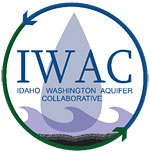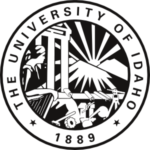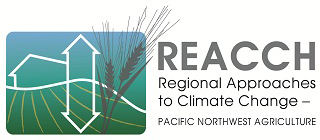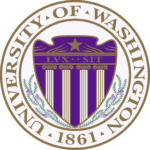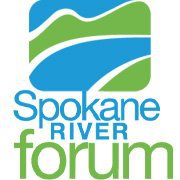 2016 Climate Change Modeling for the Inland Northwest: What’s the New Normal? John Abatzoglou, University of Idaho; John Covert, Washington Department of Ecology; Pat Maher, Avista; Andy Dux, Idaho Department of Fish and Wildlife. SRF Conference Presentation 3-23-16
2016 Climate Change Modeling for the Inland Northwest: What’s the New Normal? John Abatzoglou, University of Idaho; John Covert, Washington Department of Ecology; Pat Maher, Avista; Andy Dux, Idaho Department of Fish and Wildlife. SRF Conference Presentation 3-23-16
 The Spokane Aquifer Joint Board (SAJB) website provides links to climate change resources, presentations and local news.
The Spokane Aquifer Joint Board (SAJB) website provides links to climate change resources, presentations and local news.
 Washington State University Center for Environmental Research, Education and Outreach (CEREO) is a progressive network of more than 200 faculty, staff, students, and industry leaders working to resolve environmental issues through collaborative partnerships. Guided by a roster of distinguished scientists, CEREO seeks to apply innovative technologies and management tools to the ever-growing challenges of global climate change and environmental sustainability. Recent projects include:
Washington State University Center for Environmental Research, Education and Outreach (CEREO) is a progressive network of more than 200 faculty, staff, students, and industry leaders working to resolve environmental issues through collaborative partnerships. Guided by a roster of distinguished scientists, CEREO seeks to apply innovative technologies and management tools to the ever-growing challenges of global climate change and environmental sustainability. Recent projects include:

- BioEarth – Biosphere-relevant earth system model – Project Goals – Improve understanding of the interactions among carbon, nitrogen, and water at the regional scale, in the context of global change, to inform decision makers’ strategies regarding natural and agricultural resource management.
- CEREO Newsroom – Washington State University graduate students are conducting research to address and resolve environmental challenges. Learn about how to utilize the Newsroom in your next research grant and check out some of the ways on-going research is being communicated to the public by teams of graduate and undergraduate students.
- Watershed Integrated Systems Dynamics Modeling (WISDM) Our overall goal for this program is to improve understanding of interactions between water resources, water quality, climate change, and human behavior in agricultural and urban environments, including exploring how primary water users can be involved in the research process to develop scientifically sound and economically feasible public policy.
The University of Idaho is the lead institution for REACCH – Regional Approaches to Climate Change – Pacific Northwest Agriculture. An interdisciplinary team of scientists and professionals initiated the 5-year REACCH project in 2011 with funding from the National Institute of Food and Agriculture’s Climate Variability and Change Program to ensure sustainable cereal production in the inland Pacific Northwest under the risks of regional climate change. Participants from many disciplines related to agricultural, climate, social and information sciences are engaged in a thoroughly integrated research effort that addresses the complexity of these systems and their responses to drivers of change. In addition to research, the project has significant education and extension components. Download REACCH Overview.
The University of Washington Climate Impacts Group conducts pioneering research on climate variability, climate change, and climate impacts, and works with public and private entities to apply this information in risk assessment, planning, and decision making. Through research and interaction with stakeholders, we work to increase community and ecosystem resilience to fluctuations in climate by advancing understanding and awareness of climate risks, and working closely with public and private entities to apply this information as they act to shape society’s future. Download CIG Factsheet
Climate Change Scenarios for Pacific Northwest Water Planning Studies: Motivation, Methodologies, and a User’s Guide to Applications Center for Science in the Earth System Department of Civil and Environmental Engineering University of Washington Alan F. Hamlet , Amy Snover, and Dennis P. Lettenmaier
 Climate-Eval‘s strength lies in state-of-the-art studies on evaluating climate change and natural resources management. As the premier CoP in this area, they strive to provide innovative tools, guidelines and framework to evaluate climate change and natural resources management.
Climate-Eval‘s strength lies in state-of-the-art studies on evaluating climate change and natural resources management. As the premier CoP in this area, they strive to provide innovative tools, guidelines and framework to evaluate climate change and natural resources management.
- 2015 Good Practice Study on Principles for Indicator Development, Selection, and Use in Climate Change Adaptation Monitoring and Evaluation – Study Team: Punjanit Leagnavar, Dennis Bours, and Colleen McGinn, Consultants, GEF Independent Evaluation Office
- 2015 Scoping Study on Evaluation of Natural Resource Management Interventions linked to Climate Change – Study Team: Frederick Swartzendruber and Muhammad Najeeb Khan, Consultants, GEF Independent Evaluation Office
- 2013 Guidelines to Climate Mitigation Evaluations -Dr. Christine Wörlen
- 2013 Meta-Evaluation of Climate Mitigation Evaluations -Dr. Christine Wörlen
- 2011 Framework for Monitoring and Evaluation of Adaptation to Climate Change – Harris E. Sanahuja
